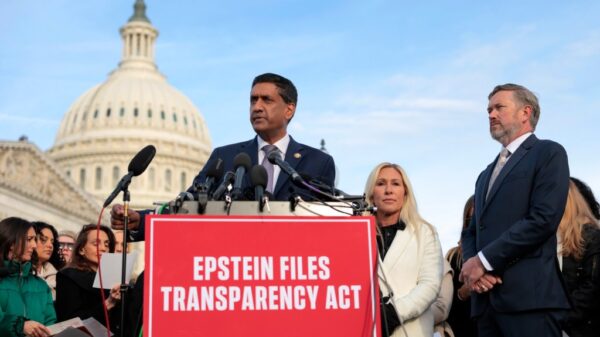Former President Donald Trump and Robert F. Kennedy Jr., the current Health and Human Services Secretary, are advocating for a ban on television advertisements for prescription drugs. Their proposal has sparked a debate over the motivations behind this initiative, raising questions about its implications for public health and the pharmaceutical industry.
Critics of the proposed ban argue that the timing and context of this initiative may not be purely focused on improving health outcomes for Americans. Instead, it could be perceived as a strategic move to challenge pharmaceutical companies, potentially harming their revenue streams and affecting television networks that rely on advertising income. The skepticism surrounding these motives is compounded by the controversial reputations of both Trump and Kennedy, particularly regarding their stances on science and medicine.
Supporters of banning drug advertisements contend that these ads often mislead consumers and contribute to the over-prescription of medications. They argue that a reduction in such marketing could foster more informed decision-making among patients and healthcare providers. Yet, there is a palpable concern that the real drivers behind the ban may be political rather than health-oriented.
Concerns Over Pharmaceutical Influence
The pharmaceutical industry has historically faced criticism for its marketing practices, with many asserting that advertisements can create unrealistic expectations for treatments. According to a report by the American Medical Association, as much as $6.6 billion is spent annually on direct-to-consumer advertising in the United States. This figure illustrates the significant financial stakes involved in any changes to advertising regulations.
While advocates argue that banning such ads could lead to more prudent prescribing habits, opponents warn that the proposal could stifle important information that helps patients understand their treatment options. The debate underscores a fundamental tension between patient autonomy and the influence of corporate interests in healthcare.
In addition to the health implications, the ban raises questions about the broader media landscape. Television networks depend on advertising revenue, and a ban on pharmaceutical ads could significantly impact their finances. This could lead to reduced programming options or increased costs for viewers, thus affecting access to information and entertainment.
Examining the Political Landscape
The motivations behind Trump’s and Kennedy’s proposal are further complicated by their political backgrounds. Trump’s administration has often been characterized by skepticism towards established science and regulatory frameworks. Similarly, Kennedy has gained notoriety for his anti-vaccine stance, which raises concerns about the credibility of his position on health issues.
As the proposal unfolds, it is crucial for lawmakers and the public to scrutinize the underlying motivations driving such significant changes in advertising policy. Understanding whether this initiative is genuinely aimed at improving public health or if it serves broader political agendas will be essential in shaping the future of pharmaceutical advertising in the United States.
In conclusion, the push to ban prescription drug advertisements by Trump and Kennedy presents a complex intersection of health policy, media economics, and political strategy. The dialogue surrounding this proposal highlights the need for transparency and accountability in healthcare-related decisions, ensuring that the primary focus remains on the well-being of the American public.






































































